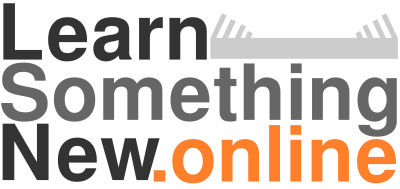Learning Accumulates: Embracing Diverse Knowledge for Personal Growth
The acquisition of knowledge is an incremental and vital process where each new piece of information builds upon the last. When individuals dedicate themselves to learning across various fields and disciplines, they not only increase their understanding but also amplify their ability to see the world from different perspectives. Learning across a spectrum of subjects creates a rich tapestry of knowledge that allows people to draw connections and insights that can be invisible when specializing too narrowly. As each new concept or skill is mastered, the learner becomes more adept at assimilating future knowledge, paving the way for a successful and informed approach to challenges and opportunities.

Embracing a broad learning approach opens doors to diverse opportunities, equipping individuals with a multifaceted set of tools to navigate the complexities of the modern world. The more one learns, the easier it becomes to adapt to new situations and solve problems creatively. Knowledge is not just about accumulating facts; it’s also about developing a flexible and open mind that can employ a wealth of information in innovative ways. In a rapidly changing environment, those who invest in a wide-ranging education can better anticipate and respond to new trends, make informed decisions, and seize opportunities as they arise.
Seasoned learners often find that their varied pursuits converge in unexpected and advantageous ways. The skills acquired in one area can unexpectedly complement those in another, leading to a synergistic effect that enhances both personal growth and professional success. Collecting diverse experiences and insights, they can engage with the world in a more profound and effective manner. This cross-pollination of knowledge nurtures the kind of adaptability and problem-solving prowess that is increasingly valued in many walks of life, from academic endeavors to the business arena.
The Vital Role of Diverse Learning

In today’s rapidly changing world, the ability to learn a variety of subjects can be a significant asset. Diverse learning enhances adaptability and fosters innovation by merging different fields of expertise.
Expanding Your Skills and Knowledge Base
Individuals who broaden their knowledge base can tackle complex problems more effectively. For instance, researchers who understand both science and art may develop novel approaches to data visualization. By learning about different domains, they enrich their understanding and can apply it to their work in multiple ways.
- Science: Deepening knowledge in physics might lead to new technological solutions.
- Art: Exploring visual arts could enhance one’s capability to present information aesthetically.
Building a Multifaceted Skill Set
Developing a multifaceted skill set equips individuals with the tools necessary for a range of tasks and projects. A worker skilled in both programming and graphic design is more versatile and valuable in tech development spaces.
- New skills: Learning coding can automate routine tasks.
- Existing skills: Enhancing design abilities can improve user experience in digital products.
The Interconnectedness of Disciplines
The interconnectedness of various disciplines often leads to breakthroughs in research and practical applications. For example, understanding the principles of psychology can improve approaches to team management in any work environment.
- Projects: In project management, proficiency in multiple disciplines often results in more innovative outcomes.
- Research: Cross-disciplinary studies have the potential to open up new fields of inquiry.
By investing time in learning new skills and exploring different areas of knowledge, individuals prepare themselves for the challenges of the future and increase their personal and professional growth opportunities.
Benefits of Continuous Learning

Continuous learning is the key to unlocking one’s cognitive potential, fostering an environment of creativity and keeping the mind in optimal health.
Enhancing Creativity and Innovation
Continuous learning exposes individuals to new ideas and concepts, fostering an environment where creativity flourishes. When one learns something new, they blend novel information with existing knowledge, leading to innovative thinking. For instance, someone who studies art history might draw upon past artistic movements to create a new design concept. Neuroplasticity plays a significant role here, as the brain creates new connections with each learning experience, enhancing the ability to think outside the box.
Long-Term Memory and Cognitive Health
Engagement in varied learning activities directly impacts memory and overall brain health. Over time, challenging the brain with new information can improve cognitive functions, including memory retention and recall. For example, learning a new language or instrument can create and strengthen neural pathways. It’s essential to understand that learning not only involves memorizing facts but also making sense of complex concepts, which helps keep the brain agile and healthy.
Maintaining Mental and Emotional Well-being
Learning new skills can significantly affect one’s mental health and happiness. Challenging oneself to master new knowledge can provide a sense of achievement and confidence. This process combats boredom, keeps the brain engaged, and promotes emotional well-being. Whether it be through taking up a new hobby, exploring a different culture, or even diving into an academic subject, learning creates a fulfilling pursuit that can lead to greater life satisfaction.
Strategies for Effective Learning

Adopting specific strategies can enhance one’s ability to learn and retain information effectively. A structured approach to absorbing knowledge can lead to marked improvements in how a person understands and applies new concepts.
Creating a Personal Learning Plan
One should create a personal learning plan that defines clear learning goals. This plan guides their learning journey, ensuring it’s aligned with their objectives.
- Identify Objectives: List the skills and knowledge areas that are to be learned.
- Set Milestones: Break down the objectives into smaller, achievable targets.
Mastering the Art of Practice
Effective learning hinges on consistently practicing the material. Practicing enables one to refine their skills and deepen their understanding.
- Regular Practice Sessions: Schedule short, daily practice sessions to maintain progress.
- Feedback Mechanism: Incorporate a means of receiving feedback to correct mistakes.
Utilizing Spacing and Reflection Techniques
Leveraging the spacing effect and reflection techniques can significantly improve the retention of information.
- Spacing: Distribute learning sessions over time to reinforce memory.
- Reflection: After each learning session, reflect upon what was learned to enhance comprehension.
Leveraging Learning in Personal and Professional Life

Learning serves as a catalyst for both personal fulfillment and career progression. It opens doors to new opportunities and strengthens social connections.
Career Advancement and Professional Development
Investing time in learning directly impacts one’s career development. Employees who embrace continuous education are more likely to advance to higher positions within their companies. For example, a professional undertaking a certification in project management will not only gain valuable skills but also increase their visibility for leadership roles.
Professional development also involves adapting to industry changes. Those who stay informed about emerging technologies and market trends are more equipped to seize new opportunities that may arise in their field.
- Goals: Set specific, measurable objectives for career milestones.
- Opportunities: Identify and pursue relevant courses and workshops.
Personal Development and Lifelong Learning
Beyond career, learning shapes personal identity and growth. People who engage in varied educational experiences frequently report a higher sense of satisfaction in life. Lifelong learning enables individuals to explore multiple interests, which contributes to a more well-rounded and culturally-aware persona.
- Personal development: Acquire new hobbies or languages to enrich personal life.
- Lifelong learning: Commit to a practice of regular learning regardless of age or stage in life.
Building Social Networks and Communities
Shared educational experiences foster community and create bonds between individuals. Joining learning groups or community classes can lead to making new friends who share similar interests. Within professional settings, attending workshops and seminars can extend one’s network to include mentors and peers that can provide support and share knowledge.
- Friends: Attend social learning events to meet new people.
- Culture: Participate in learning activities that celebrate and explore different cultures.
Challenges and How to Overcome Them

When individuals commit to learning, they invariably encounter certain obstacles. Addressing these hurdles is essential for continuous progress and maintaining the drive to learn various subjects.
Handling the Overwhelm of Information
As one delves into different subjects, information overload becomes a real challenge. They must be selective about their focus.
- Prioritization: List subjects by relevance to goals.
- Chunking: Break down information into manageable sections.
By doing so, they can ensure that the influx of information is both manageable and useful for their learning goals.
Staying Motivated and Dealing with Plateaus
Maintaining motivation and overcoming periods when progress seems to stall are common challenges. Here are strategies to stay on course:
- Set Micro-goals: Achievable milestones keep spirits high.
- Celebrate Successes: Even small wins should be acknowledged.
Regular reflection on how far they have come can reignite an individual’s drive and help push through the seemingly stagnant phases.
The Myth of Talent and the Power of Effort
The belief that talent alone dictates success often undermines confidence and progress. It’s crucial to recognize that committed effort overpowers innate talent. People should:
- Embrace a growth mindset: Understand that abilities can be developed.
- Stay persistent: Remember that consistent effort leads to improvement.
With dedicated practice and steadfastness, individuals can cultivate skills and outperform the limits set by the myth of talent.
Conclusion

Continuous learning is key to personal and professional growth. Individuals who engage in regular learning activities often find themselves better equipped to navigate the complexities of today’s ever-changing world. Adopting the habit of learning various subjects can foster an effective learner mindset.
A person who diversifies their knowledge base becomes more adaptable in different situations. This approach is not just about the accumulation of facts; it’s about developing a set of skills that can be applied in various contexts. Learning across a broad spectrum allows one to make connections between disparate pieces of information, which can lead to innovative solutions and a more comprehensive understanding of the world around them.
Attempting to become the best solution finder in any scenario is ambitious. Yet, those who prioritize a broad learning strategy often excel at problem-solving. They draw upon a rich repository of knowledge, which helps in dissecting problems and constructing robust solutions.
Moreover, the journey toward becoming a lifelong learner is inherently rewarding. It nurtures intellectual curiosity and personal satisfaction, contributing to one’s overall sense of achievement. In essence, the pursuit of knowledge is a continuous spiral upwards, leading to growth that is as personal as it is professional.




